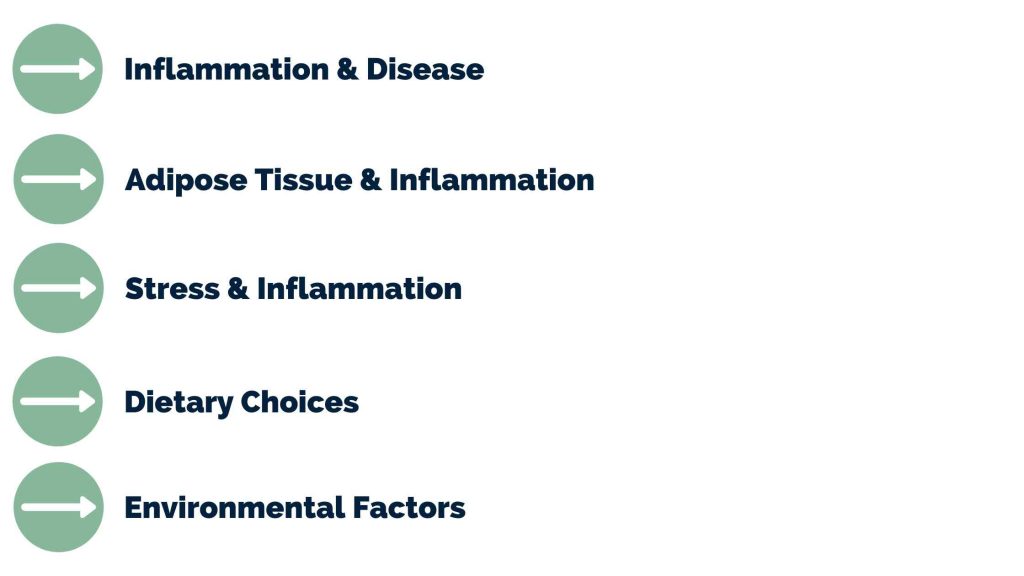Diet & Inflammation-Advice from our Expert Dietitian

Eating an anti-inflammatory diet allows you to naturally reduce the level of systemic inflammation in your body through the foods you eat. Paired with appropriate lifestyle, medical interventions (where necessary), and addressing the underlying cause of your inflammation, improvements in your overall health & wellbeing, body function, and pain levels can be achieved.
Our expert Dietitians have provided their top tips to reduce inflammation and have also provided some factors to consider.

Some simple dietary choices that you can implement into your diet to help reduce increased inflammation include:
REDUCE TRANS & SATURATED FAT INTAKE:
- Fried and takeaway foods
- Baked goods (cakes, cookies, biscuits, doughnuts, etc.)
- Processed snacks (crisps, deli meats, corn chips)
- Butter & coconut oil/creams
- Fatty meat cuts, untrimmed meat, poultry skin
INCREASE OMEGA-3’S INTAKE:
Plant-based Omega-s: Aim for 1 serving per day
- 1/4 regular avocado
- 30g unsalted nuts
- 1 tablespoon natural nut butter
Marine Omega-s: Aim for 3x (150-200mg) serving per day
- Salmon, sardines, mussels, tuna, mackerel
Extra virgin olive oil
- Aim for 2-4 tablespoons per day
HIGH FIBER & ANTIOXIDANT CONTAINING FOODS:
- Wholegrain grains, bread, and cereals
- 6 serves of vegetables per day
- 2-3 fruits per day
- Eat a rainbow of colours
- Aim for 30 different plant foods daily
- Aim for 3 serves (1 cup) of beans or legumes per week
LIMIT RED MEATS:
- Aim for 1 serving (100-120g raw) of red meat per week
- Avoid charring foods
- Ensure adequate protein intake with 1-3x serves of poultry, 3x serves of fish and
- Inclusion of plant-based proteins per week
MANAGE FAT MASS:
- Maintain adequate protein
- Reduce intake of high energy, nutrient-poor foods
- Engage in regular physical activity, including regular resistance training
- Reduce alcohol input
- Consume regular meals
- Aim for 2L water per day
- Discuss a safe and appropriate fat mass reduction strategy with your accredited practicing dietitian
- Incorporate regular stress management strategies into your lifestyle (yoga, meditation, tai chi, mindfulness)
SUPPLEMENTS:
- Discuss these with your accredited practicing dietitian
These recommendations should be discussed with an accredited practicing dietitian. This will ensure that an individually tailored approach is designed that is safe for your personal circumstances is established.
Other medical conditions may alter these recommendations for an individual. If you feel you or someone you know may need assistance with their diet and Inflammation, call your nearest Sports & Spinal Clinic to see how our Dietitians can help you OR click here to learn more.
